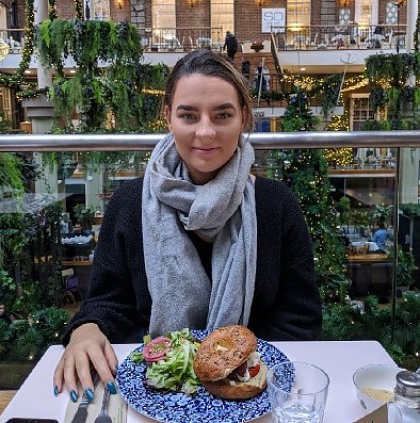Alice: NHS General Management Scheme
In 2019, Alice graduated from The University of Manchester with a BA in Geography. She is now a Deputy Operations Manager on the NHS General Management Scheme.
Did you always know you wanted to work in this sector?
No. I always knew I wanted to work with and for people. Something like a doctor, but I wasn’t keen on touching people (!) and didn’t want to wait so long to start working. Arguably, I also wasn’t applied enough academically to go into medicine.
The NHS General Management Scheme found me more than anything. It was during a year interning for The University of Manchester that I was looking for my next role and googled ‘Graduate schemes’. The NHS was one of the first that came up and it struck a chord in me. I knew it wanted to work for people and having done a healthcare module in Geography the previous year, it felt like a calling.
What is the structure of the scheme?
The scheme is two years long with a total of three placements in different hospitals in your chosen area of the country (e.g. North West, North East, London, etc.). The first placement is a year long, then a flexible placement for two months (in an area of your choice). The programme closes with a 10 month placement.
You also complete a PGDip in Healthcare alongside completing work-based competencies in your placement (if in general management - this differs for other specialities).
What does a normal day look like in your current role / placement?
My day always changes. It includes considering who uses theatres and how, trying to get patients seen within their target time, speaking to consultants about the pressures on their clinics, and trying to find solutions, pushing to take the NHS into the 21st century by removing paper records from departments. It’s varied, exciting, and keeps you on your toes.
Would you recommend this graduate scheme for current students / recent graduates?
You are forced out of your comfort zone, but supported all the way. The scheme is about shaping you to be a leader and maximising your learning opportunities. This means speaking to new people, progressing academically, questioning what you see on the day-to-day to see what you would do differently and why.
There is always support during your placements, as well as throughout scheme. This support is integral as it means that you have someone to push you when you need it, but also to help you out when things get a little hard.
What was the application and assessment process like?
The application process includes an assessment in your Maths and English skills, then a video interview where you assessed on the competencies desirable for the NHS, and finally an assessment centre.
I prepared with the NHS leadership model as my frame of reference. It was key to constantly relate back to patient care and think about the wider picture of healthcare for the department / organisation / area.
What are your plans for the future?
I plan to take the skills I have learnt during the graduate scheme to continue fighting for the best healthcare we can offer in the NHS.
I think there are big changes happening in the NHS and in healthcare – not all because of the Coronavirus but a lot to do with it.
This is an exciting time to be part of shaping healthcare for the population. I think we are going to see changes in what healthcare looks like and how it is delivered and I would like to be at the forefront of these changes.

